'Collateral damage' - What impact could Donald Trump’s tariffs have on the bike industry?
How the newly elected President’s proposed tariffs may affect U.S. bike brands, consumers and the wider industry
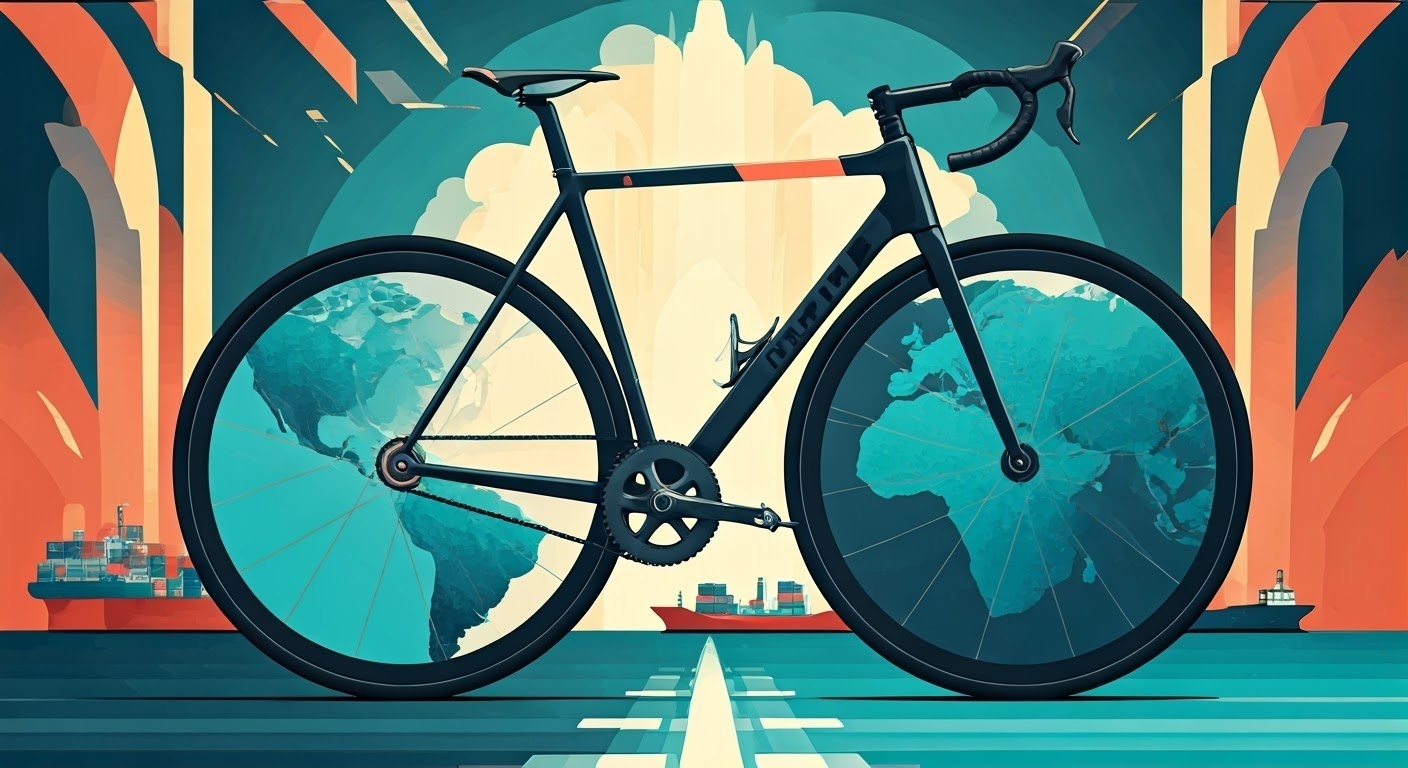
On his campaign trail, the United States of America's president-elect, Donald Trump, proposed to raise tariffs on imported goods, touting up to a 60% tax on products from China, and up to a 20% tax on products from other countries.
While he is yet to mention the bike industry outright, the impact these proposed tariffs could have on the sector is palpable, as many bike brands rely on foreign suppliers, importing parts and bikes from China, Taiwan, Vietnam, Cambodia and Thailand.
The high tariff on China is particularly relevant to the bike industry as China dominates bike manufacturing. A report estimated that China accounts for 86.3% of the U.S. bike market, while another report revealed that China contributes to 60% of the global bicycle trade, making the country the world’s largest bicycle production and export hub.
Off the bat of his appointment, U.S. markets reacted positively. The S&P 500 reached a new all-time high and U.S. banks including JP Morgan and Goldman Sachs jumped double digits, which hasn’t happened since the COVID-19 pandemic, on the presumption that Trump’s election means taxes will most likely fall.
However, for retailers and manufacturers reliant on foreign suppliers, the reaction to the tariffs hasn't been so positive. Just days after Trump's election, footwear company Steve Madden announced it is reducing its dependence on China while UBS Global Wealth Management's Paul Donovan said Trump's proposed tariffs could be "extraordinarily disruptive" to global trade in an interview with CNBC.
How tariffs work
A tariff is a domestic tax placed on goods as they enter a country. They are usually paid by the company which imports the goods in question, however, Trump has said the taxes would not be a cost to Americans but to other countries. Trump has yet to clarify how this would work and is yet to announce who will oversee trade.
This isn’t the first time that Trump has wanted to increase import tariffs. During his first presidency, he introduced 7.5%-25% tariffs levied on China in 2018 which saw higher costs for manufacturers, importers and consumers, and supply chain disruptions.
Price increases, reduced consumer buying power and additional supply chain complexities have been touted as potential effects of the proposed tariffs, although others say the taxes could lead to localised and faster bike production.
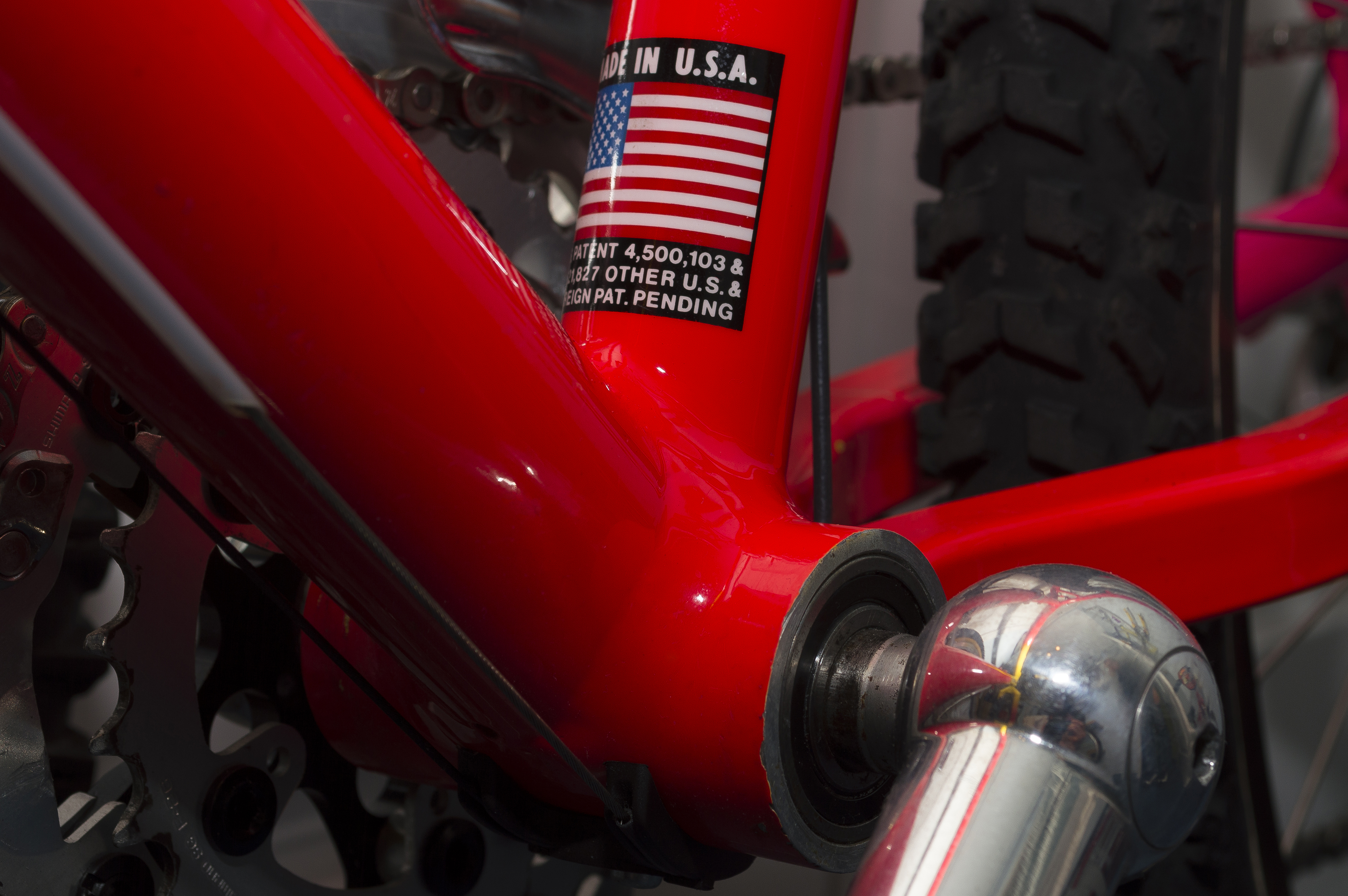
Reshoring production
Trump's rationale for the tariffs is they will encourage companies to produce inside the US, which will lead to economic growth, job protection, and higher tax revenue.
"There are so many problems which come with manufacturing bikes in China," said Peter Abraham, a bike industry marketing consultant. "You have to forecast demand a year in advance, products have to be shipped across the Atlantic and Pacific on a container ship, and it takes so long and is so slow. It's 2024, is that really the best way to manufacture bicycles?
"The tariffs open up the possibilities of introducing new technologies and innovation into bicycle manufacturing, like 3D printing which could become mainstream and could help us make bikes way faster.
"China do a great job, they are amazing at making bicycles, but it’s a cumbersome process which should be faster and more responsive to the customer, and we should be able to avoid all these trade policies which change every few years."
Sign up to the Musette - our subscriber-only newsletter
Based in Santa Barbara, Stinner Frameworks is a key player in domestic bike manufacturing. Aaron Stinner started his namesake company 14 years ago and it has grown from custom builds to contract manufacturing for other brands, which now accounts for 80% of the business. COVID-19 led to a surge in demand, prompting the business to scale up and take on more contract manufacturing work. The company sources its materials from the US, Canada, and Italy.
Stinner has not yet advertised but has received inquiries post-election about domestic manufacturing and tariffs.
"Tariffs could close the cost gap between domestic and overseas production," said Stinner. "All our pricing tends to be about 20 to 25% higher than current Taiwanese stuff. In the last couple of days, I've had conversations with brands that are importing from Taiwan, and they're seriously considering moving production here just to get in front of the tariffs. Especially with the potential 60% tariffs for China, we become very viable.
"Prototyping is cheaper overseas due to lower costs for moulds and cast parts. You can get a mould made in China for $1,000 while in the U.S. it can cost $18,000 for the same mould. This is only viable when you are making U.S.-made frames at high production volumes."
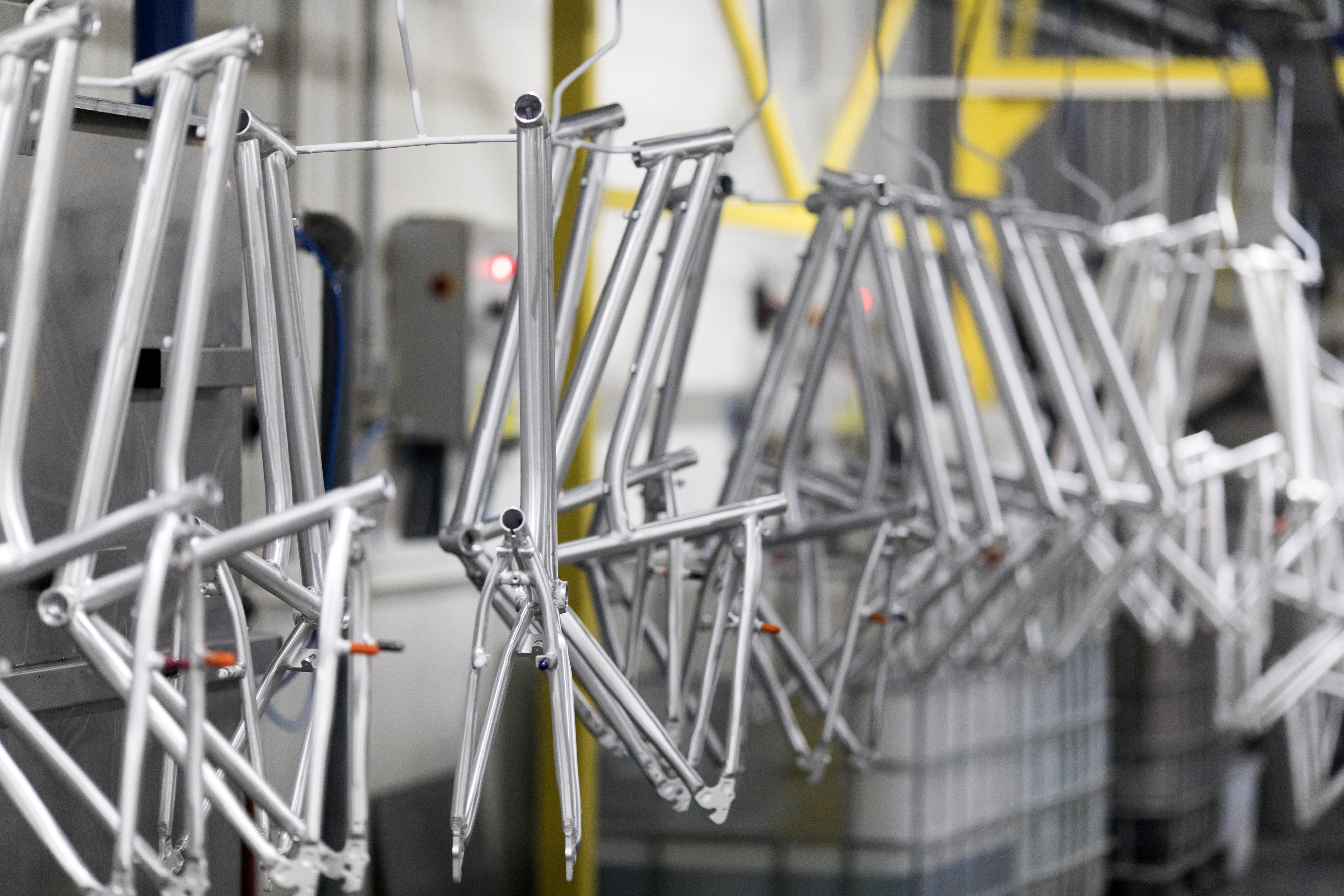
Moving from one country to another
While Trump highlights reshoring and job creation as an impact of tariffs, during his first presidency, some companies shifted away from China to Vietnam, Cambodia and Taiwan. One of those was Prevelo Bikes, a small, direct-to-consumer boutique selling premium kids' bikes, based in California.
"The benefit to [using] China is that they have an enormous amount of manufacturing capacity, and they have a lot of components, tyres, brake levers, cranks, everything is made domestically, so it's very easy to manufacture in China," said Jacob Rheuban, founder of Prevelo Bikes.
"When you go outside of China, supply chains get more complex as there are fewer choices for factories. The prices are similar, but you have to work a bit harder to make it happen."
For complete bikes, there are rules about the amount of non-local content a bike can contain, and so far, Trump has not indicated he will change these rules which is good news for Prevelo.
"If we make a bike in Cambodia, there are rules about the amount of non-Cambodia content that can be in the bike and still have it labelled as 'made in Cambodia'," said Rheuban.
"If we use $20 worth of Chinese content in a $500 bike, that $20 is not going to cost us $60, as it still counts as a Cambodian-made bike. As long as those rules don't get rejigged, then it's probably not going to impact where we make our complete bikes."
Despite having already rejigged his supply chain, it is an unsettling time for Rheuban. "I don't like uncertainty, so that makes me a little anxious, but one way or another the industry is going to survive."
It's a similar sentiment for State Bicycle which is predominantly direct-to-consumer and makes bikes in the $500 - $1500 range.
Based in Arizona, during the first Trump tariffs the company diversified its supply chain and absorbed as much of the cost as possible, but it had to increase product prices. The brand still relies mostly on mainland China and Taiwan.
"I don’t believe tariffs achieve the intended purposes of bringing more jobs to the US," said Mehdi Farsi, co-founder of State Bicycle. "The conversations are usually about moving production from one country to another, not about bringing domestic production at scale, given that the vast majority of parts would still need to come from elsewhere.
"Just because the manufacturing is done overseas, it doesn’t mean we aren’t creating jobs here in the US, we have employed hundreds of people, paid millions in various taxes, and we are just a small company. It’s going to cost jobs if there are tariffs, not necessarily create jobs."
Higher prices
Analysis by The National Retail Federation found Trump's anticipated tariffs "would have a significant and detrimental impact on the costs of a wide range of consumer products sold in the United States, particularly on products where China is the major supplier." The research also estimates that American consumer spending power would be reduced by $46 billion to $78 billion every year the tariffs are in place.
For No. 22 Bicycle Company, which builds its custom titanium bikes in Johnstown, New York, the potential impact on consumer spending power is a major threat.
"I worry that people are going to have reduced purchasing power because I don't see a way that these tariffs don't have a massive increase on the cost of living and on inflation," said Mike Smith, co-founder of No. 22.
"If customers have less money to spend, then they're not going to buy our bikes, and that is what's really going to hurt us.
"We make a really premium product, and it has a relatively high price point, but they're actually really expensive to make as well. Our margins are not that healthy, so we will have no choice but to pass increased costs on in the form of higher prices."
Price rises seem to be a consensus.
"Should the 60% tax be implemented across the board, we will be employing several different strategies to survive," said Farsi. "We can negotiate prices with current producers in China, we can look to source portions of bikes elsewhere, we can look to cut costs domestically, but ultimately a portion of that tax would be passed along to the consumer."
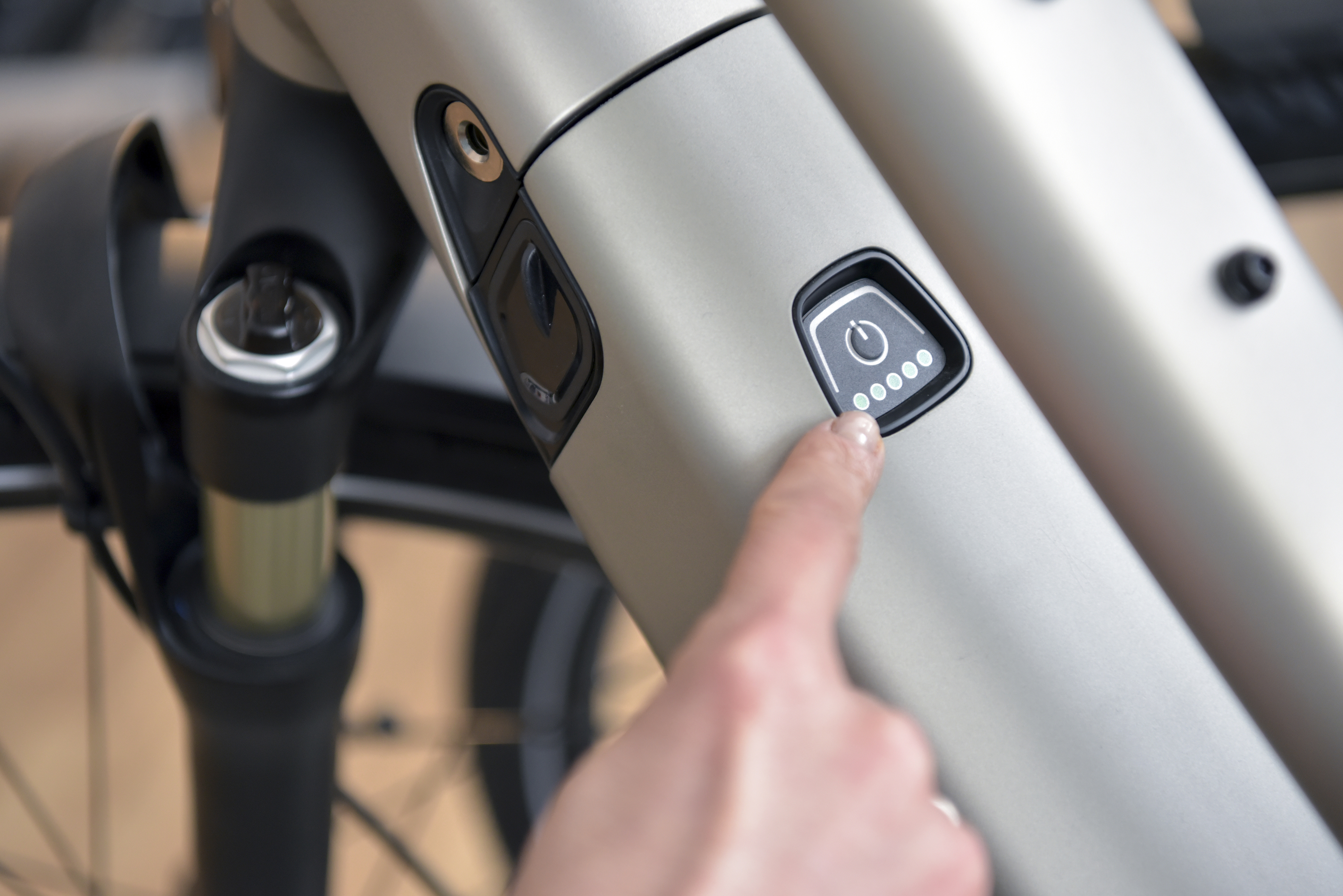
What about e-bikes?
E-bikes have been hit with extra tariffs because of the electric vehicle (EV) market, and the industry's reliance on importing Chinese electric batteries. The Biden administration announced 25% tariffs on e-bike batteries imported from China starting in 2026, up from 7.5%, and with Trump's proposed tariffs this could rise to 60%.
Kyle Ransen, CEO and founder of electric bike brand Vvolt, which is based in Portland, Oregon, tried to speak to the Biden administration about the recent EV tariff and was told by a representative that as an e-bike company, he was simply "collateral damage."
"Ninety per cent of e-bikes originate in China, which puts us in a difficult position," said Ransen. "We are lucky in the respect that our main Chinese supplier has a facility in France which could help us bypass some of the tariffs, but it is not smooth sailing."
For Ransen, it's not just the threat of increased costs, but the potential for fraud under the guise of relabelling which could have safety and quality implications. When Trump first introduced tariffs, three different companies offered to take in Chinese bikes and relabel them as coming from their country so Vvolt could avoid tariffs.
Exemptions and relief
During the first Trump presidency, the bike industry benefited from 301 tariff exemptions, thanks to pressure from bike brands on the U.S. Trade Representative (USTR), however, these exemptions have now lapsed.
"Our exemption request was the one which was granted and which saved the industry quite a bit of money," said Farsi. "The Biden administration subsequently let those exemptions go, so as of today we are paying a 25% tariff on top of our 5.5% tax.
"It’s frustrating that these things come and go, it’s impossible to make long-term decisions. Why would you re-engineer your entire supply chain if it’s only for 18 months? The small silver lining is that the Trump administration in the past was open to hearing companies out and identified bikes as a product which isn’t going to make a difference with tariffs so we will definitely explore that route again."
The U.S. bike industry trade association, PeopleForBikes, plans to ask the incoming administration for tariff relief for bike components used for domestic assembly and on goods like helmets, leaning on Congressman Earl Blumenauer's bill which was put forward in June 2024.
"This targeted relief could benefit companies trying to assemble bikes in the U.S. by lowering the cost of key inputs while creating new jobs for Americans," said Matt Moore, General and Policy Counsel at PeopleForBikes.
Reauthorisation and reform
It's not just targeted tariff relief which might help the bike industry, the trade association plans to explore two other routes.
The General System of Preference (GSP) was a system which allowed brands to partner with developing countries and import products to the U.S. with no tariffs. Cambodia became an attractive destination because it had tariff exemptions on bicycles imported to the U.S. under this system during the first tariffs. However, the GSP lapsed in 2020 and there is no indication from Trump that he will renew it.
"GSP reauthorisation would support U.S. companies that have already established their supply chains outside of China and encourage others to do the same," said Moore.
"When Congress reauthorises GSP, products and component inputs used for domestic assembly can be imported duty-free, helping offset increased tariffs placed on imports from non-GSP countries and supporting domestic assembly jobs. Since GSP lapsed in 2020, all imports from these countries have been subject to existing high tariffs on bicycles and components, increasing costs for U.S. companies and, ultimately, for consumers."
De minimis is an exemption which allows imports under $800 to enter the U.S. duty-free, and the trade body believes it needs to be reformed because it does not promote a level playing field.
"The current de minimis threshold has significantly encouraged direct-to-consumer imports of bike parts, accessories, bicycles and e-bikes, particularly from China," said Moore.
"While this provides some cost advantages for online retail platforms and consumers, it also places US-based assemblers and manufacturers who must pay import duties and comply with U.S. regulations at a disadvantage and exposes consumers to risks from unsafe products.
"De minimis reform has strong bipartisan support, with proposed legislation pending in Congress. Any action to lower or eliminate the $800 de minimis threshold would help level the playing field for U.S. manufacturers, importers, distributors, and retailers by reducing the advantages currently afforded to Chinese companies."
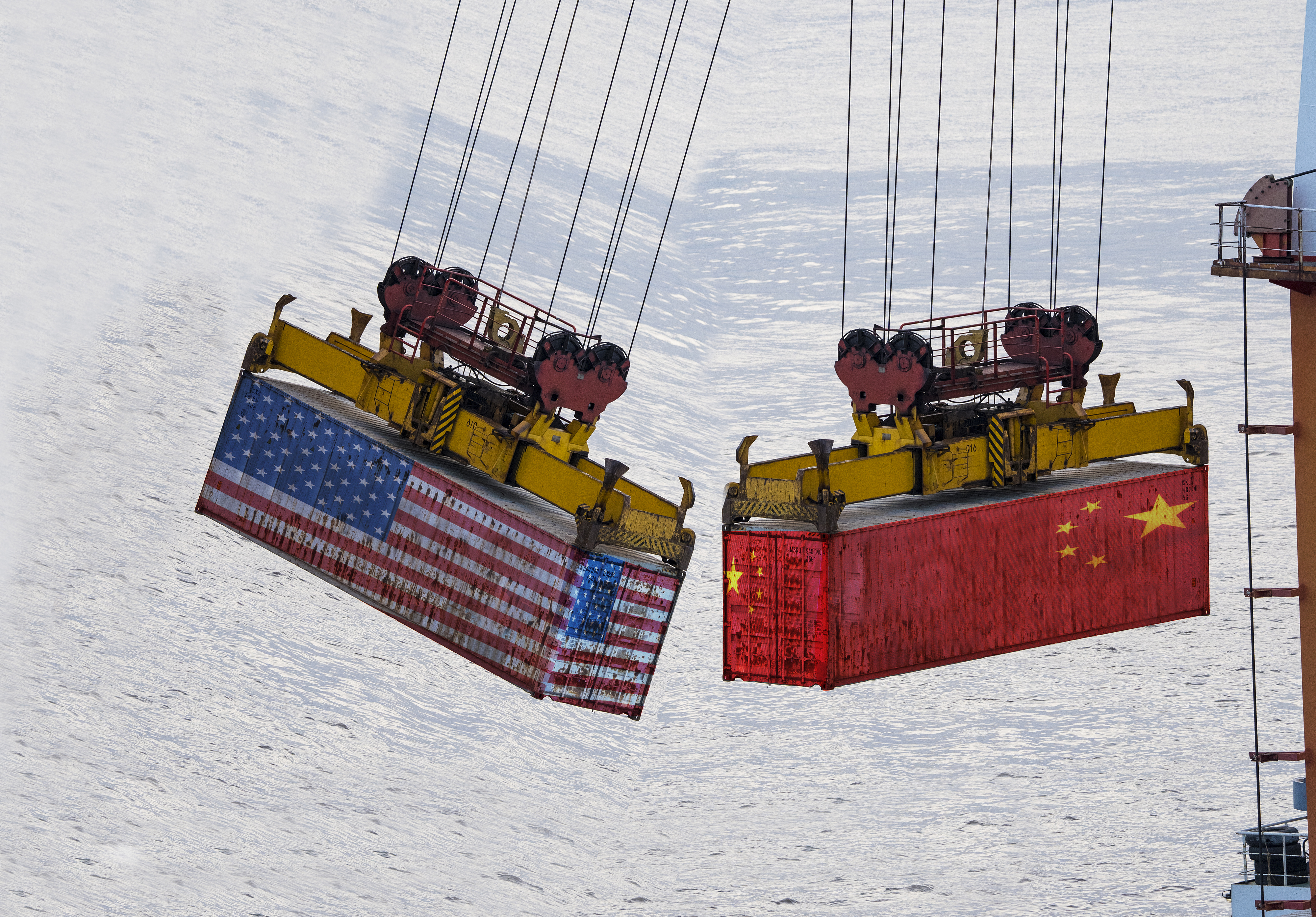
Could we see another trade war?
While the focus is on Trump, China's reaction to the tariffs could also have a profound impact on the industry.
“If he implements the tariffs as he says he will, there could be some pretty catastrophic economic effects because you would expect some retaliation,” said Simon Usherwood, Professor of Politics & International Studies at The Open University.
“Economic growth will fall back. We’ve already seen the cutting back of UK growth forecasts on the back of Trump's win, and we’d expect a general weakening of free trade. Given how reliant the bike industry is on moving components around the world, I’d expect that even if a company isn’t directly affected, many supply chains will get caught up in the crossfire of any kind of retaliatory action.
"It's not going to be as bad as COVID-19, but we can expect considerable price shock, and for an industry that has not come out of COVID-19 rebalancing, we might well find that significant players are unable to cope with further disruption. I struggle to see any upside to it at all, even the threat [alone] of the tariffs has negative impacts."
Add in the ongoing geopolitical stresses between China and Taiwan which were a concern for some brands before Trump's election, and the outlook doesn't look so rosy.
Will the tariffs definitely happen?
Trump is due to be sworn in as the 47th President in two months and will have control of both the House of Representatives and the Senate. For his first presidency, he did not control both legislative houses, so passing through policy should be comparatively more straightforward during this administration.
There are, however, a lot of unanswered questions about the tariff proposals. These include funding the infrastructure needed for domestic production and new technologies, how economies of scale will make domestic manufacturing cost-effective, and the availability of skilled labour. It also remains to be seen how China, and other countries, will react to the tariffs.
However, the bike industry is a small fish in a very big pond, and the tariffs will affect all industries, including significantly bigger businesses than those in the bike industry.
It's yet to be seen how the likes of Amazon, Apple, Walmart, and big automotive companies with way more to lose than bike brands will react to Trump's tariffs.
If you subscribe to Cyclingnews, you should sign up for our new subscriber-only newsletter. From exclusive interviews and tech galleries to race analysis and in-depth features, the Musette means you'll never miss out on member-exclusive content. Sign up now
Emma Cole is a gold-standard NCTJ journalist who loves anything to do with adventure, sport and sustainability. Alongside writing about these passions for Cyclingnews, her work has also featured in Cycling Weekly, Outdoors Magic and Cyclist Magazine - where she previously held the role of Features Writer for over two years. Emma hosts her own podcast, The Passion Stories Podcast and has a first-class degree in French and Politics.